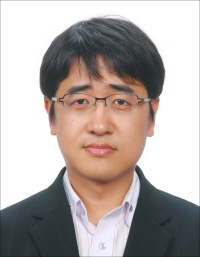
- POSITION
- Prof.
- ymomo@pusan.ac.kr
- HOMEPAGE
- http://fnc.pusan.ac.kr/
- Lab.
- Future Network & Communication Lab.
1. Research Area
Communication network is the foundation of human life besides modern technology. FNC Lab studies overall communication and network technologies, including wire and wireless communication. Communication can be carried out not only on the ground but also in space, air and water. The latest research uses AI method to improve the performance and reliability of communication networks.
2. Research Overview

Various kinds of services in mobile networks require various types of performances such as high bandwidth, low-latency, and ultra-reliability from the 5G and 6G networks. In order to meet the requirements the 5G and 6G networks need many cutting-edge technologies. Thus FNC Lab studies the following topics:
- Network caching: Caching is useful for low-latency and efficient data delivery. Since the mobile network has a complicated architecture consisting of RRH, BBU, and core network, delicate decisions are needed on what data to store and where to store it.
- Network slicing: It is impossible for a single type of network to optimally support all services with different performance requirements. So, the 5G and 6G networks provide a way to virtually divide an entire network into multiple types of networks. Each virtual network can be configured to optimally support a specific type of service.
- Multiple access: Significant improvements in data bandwidth require innovative changes in multiple access systems. NOMA (non-orthogonal multiple access) and OMA (orbital angular momentum) have recently drawn keen attention as new multiple access schemes.
- Content-Centric Network (CCN): Current data network is based on IP addresses when finding target devices. However, in mobile networks, a device can have multiple IP addresses or its IP address can be changed dynamically. Therefore, a new networking concept that searches for target content, not target devices, is studied.
In addition to the above topics, FNC Lab outlooks the 6G network to prepare for the future.
3. Research Achievements
* SCI(E) Journals
- Jaemin Kim and Younghwan Yoo, "Sensor Node Activation Using Bat Algorithm for Connected Target Coverage in WSNs," Sensors, Jul. 2020 (SCIE) (IF: 2.677)
- Sungryul Kim and Younghwan Yoo, "Practical Multiple User System Using Heterogeneous Frequency Modulation for High Data Rate in Underwater Sensor Network," Wireless Personal Communications, May 2019 (SCIE) (IF: 1.200)
- Zeba Ishaq, Seongjin Park, and Younghwan Yoo, "A Security Framework for Cluster-Based Wireless Sensor Networks against the Selfishness Problem," Wireless Communications and Mobile Computing, Jul. 2018 (SCIE) (IF: 0.869)
- Sungryul Kim and Younghwan Yoo, "Contention-Aware Adaptive Data Rate for Throughput Optimization in LoRaWAN, " Sensors, May 2018 (SCIE) (IF: 2.677)
- Sungryul Kim and Younghwan Yoo, "Impact of MAC Delay on AUV Localization: Underwater Localization Based on Hyperbolic Frequency Modulation Signal," Sensors, Jan. 2018 (SCIE) (IF: 2.677)
- Sungryul Kim and Younghwan Yoo, "MIMO-HFM: A MIMO System with Hyperbolic Frequency Modulation for Underwater Acoustic Communication," Wireless Personal Communications, Sep. 2017. (SCIE) (IF: 0.701)
- Seongjin Park and Younghwan Yoo, "Network Intelligence based on Network State Information for Connected Vehicles Utilizing Fog Computing," Mobile Information Systems, Feb. 2017. (SCIE) (IF: 1.462)
* International Conferences
- Jaemin Kim and Younghwan Yoo, "Energy-Efficient Routing Using Genetic Algorithm in Cluster-Based Wireless Sensor Networks" in Proc. IEEE 90th Vehicular Technology Conference, Sep. 2019
- Seongjin Park and Younghwan Yoo, "Real-time Scheduling using Reinforcement Learning Technique for the Connected Vehicles," in Proc. IEEE 87th Vehicular Technology Conference, Jun. 2018.
- Jiseong Lee and Younghwan Yoo, "Handover Cell Selection Using User Mobility Information in a 5G SDN-based Network," in Proc. 9th International Conference on Ubiquitous and Future Networks (ICUFN), Jul. 2017.